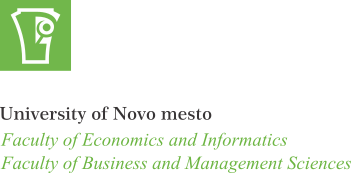Education As A Strategic Priority: Evaluation Of The Financing Of The Education System In The Republic Of Srpska
DOI:
https://doi.org/10.55707/eb.v12i1.149Keywords:
investment, financing, educational processes, qualityAbstract
The paper deals with the evaluation of the financing of the education system in the Republic of Srpska in the period from 2014 to the end of 2023, with special reference to the importance of education for overall social and economic development. Education is a key factor for the development of human resources, innovation and competitiveness, and is vital for the long-term progress of the country. However, the results of the analysis show that less than 2% of the total investments are invested in the education sector, which is significantly below the international standards and recommendations. This lack of investment can threaten the quality of education, reduce the availability of resources and lead to long-term consequences for the economic growth and social stability. Through a review of quantitative data, the paper identifies weaknesses in the structure of education financing and points to the necessary reforms to enable a better investment in the education sector, which is of essential importance for the sustainable development of the Republic of Srpska.
References
Gabrichidze, T. (2022). Higher Education Funding Strategies: Towards Equity, Efficiency, and Quality. European Scientific Journal, 18(19), 20–34. https://dx.doi.org/10.19044/esj.2022.v18n19p20
Hastina, H., Safiltri, D., and Ramadhan, R. (2020). Analisis Kebijakan Pendidikan Terkait Akuntabilitas Pembiayaan Pendidikan. Journal of Educational Policies, 1(1), 45–67. https://doi.org/10.31004/edukatif.v2i2.126
Kasradze, T., Antia, V., and Gulua, E. (2019). Challenges of Financial Management of the Higher Education Institutions in Georgia. European Journal of Educational Studies, 5(1), 187–206. https://doi.org/10.26417/ejes.v5i1.p187-206
Mahputriono, M. (2022). Determination of education quality and graduate quality: Funding and curriculum management analysis. Dinasti International Journal of Management Science, 3(6), 1–18. https://dx.doi.org/10.31933/dijms.v3i6.1306
Manolescu, G. (2009). The reform of education funding: principles, options, modalities. Economic Journal, 8(2), 45–58.
Musah, A., and Aawaar, G. (2022). Financial development and educational quality in Sub-Saharan Africa. Cogent Economics & Finance, 10(1). https://doi.org/10.1080/23322039.2022.2131115
Nazukova, N. (2020). Public funding of education as a factor of economic growth. Economic Forecast, 2, 72–88. http://dx.doi.org/10.15407/econforecast2020.02.072
Rusina, H. (2022). Education Financing and Assessment in Improving the Quality of Education in Indonesia. INJOE Journal, 3(2), 34–45. https://dx.doi.org/10.54443/injoe.v3i2.26
Rusina, H. (2022). Education Financing and Assessment in Improving the Quality of Education in Indonesia. Indonesian Journal of Education (INJOE) Journal, 3(2), 207–215. https://dx.doi.org/10.54443/injoe.v3i2.26
Sutansyah, L., and Ramdani, A. (2023). Pembiayaan Pendidikan: Urgensi, Tantangan, dan Solusi. Pelita Nusantara Journal, 1(2), 87–102. https://doi.org/10.59996/jurnalpelitanusantara.v1i2.197
Tamam, B. (2018). Reorientasi Pendanaan Pendidikan Dalam Membangun mutu Sekolah. Majalah Alamanda, 29(2), 234–256. https://doi.org/10.24853/ma.1.2.44–57
Tindra, N., and Kadri, H. (2019). Efektivitas dan Efisiensi Pembiayaan Pendidikan. Educational Financing Studies, 48(4), 23–35. https://dx.doi.org/10.31227/osf.io/48btr
Downloads
Published
How to Cite
Issue
Section
License
Copyright (c) 2025 Zorana Agić, Svetlana Dušanić Gačić, Mirjana Milovanović

This work is licensed under a Creative Commons Attribution 4.0 International License.





